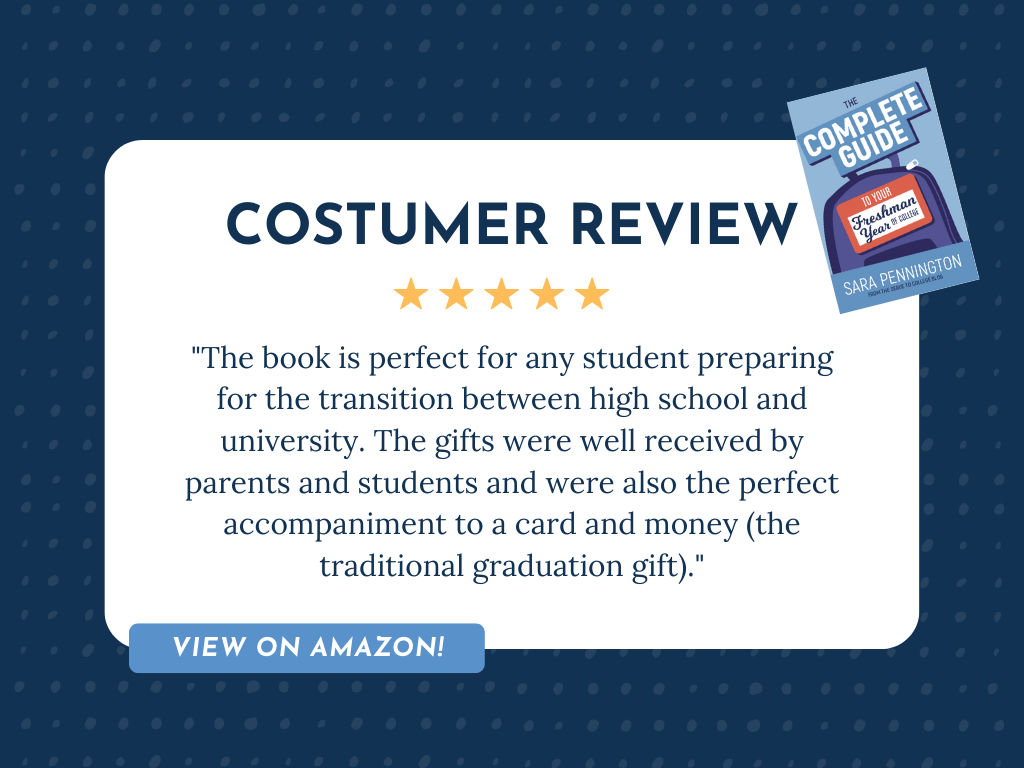Should My Child Take a Gap Year?
Being stuck is a pretty miserable experience.
Yet, many eighteen year-old high school graduates feel this way about college.
They’re not excited or even interested in college, but feel like that’s what they have to do next.
Being the parent of a stuck high school grad is also a pretty miserable experience.
Will this phase result in your child being permanently “lost” or left behind by their peers?
Will your child’s academic abilities and interests deteriorate if they take a gap year?
In an article for TIME, one parent describes the complexities of this situation:
“As parents we raise our kids to think for themselves, to be creative, to follow their own path . . . but then suddenly, starting in their junior year, we are asking them to go along this very prescribed path that might not be right for them.”
So is a gap year right for your incoming freshman? Below are three signs that a gap year may be the right next step for your child!
Your child is not sure why they want to pursue a college degree.
Many college students can’t provide a substantive answer to the question, “Why do you want a college degree?”
It’s not surprising then that many freshmen struggle to know their “why” either.
But there are some incoming freshmen who are especially paralyzed by this question. This is what this paralysis may look like…
Your child doesn’t have a direction they’re heading toward. This doesn’t mean they need to have a specific job title or company in mind, but it does mean they have a general idea of where they’re headed (e.g. education).
Your child doesn’t have a somewhat fuzzy picture of where they see themselves in 5-10 years. Again, this doesn’t mean they have their life planned out in the most minute-level of detail. This does mean they have an idea they’d like to be in the medical or finance field.
These could be signs that a gap year may need to be a possibility both you and your freshman discuss.
Your child is socially not ready for college.
In an article for GreatSchools, Stanford University’s Acting Director of Admission Mike Devlin shares that “students who take a gap year arrive [to college] with more maturity both socially and in the classroom.”
Speaking from my personal experience teaching college and advising freshmen, there are many freshmen that would benefit greatly from some time to mature.
Here are some signs that may signal a need for a gap year:
Your child typically blames others for misunderstandings and mistakes. This doesn’t mean that they’re always at fault, but it does mean that your child can admit when they are at fault.
Your child typically struggles to engage in meaningful or serious conversations. This doesn’t mean that they need to act older than an eighteen year old. This does mean your child can participate and add to conversations that contain some depth when appropriate.
Your child typically forgets their responsibilities. This doesn’t mean your child is perfect and never makes mistakes, but it does mean that they can set priorities when needed in their job or schoolwork.
Some time away from the busyness of classes may help your child work on adjusting and maturing in these areas.
Considering a gap semester or year may help these areas to improve dramatically.
Your child is unsure of what field of study they want to pursue.
Choosing a major is stressful.
How can an eighteen-year-old student possibly determine what they want to do with their life?
Changing a college major one or two times is fairly common, but in general dramatic changes of majors once in college (e.g. from nursing to creative writing) should not be a common occurrence.
A gap year can help to provide focus to students who may pre-college demonstrate these behaviors on a regular basis:
Your child isn’t interested in “anything.” I’ve personally heard this statement from several freshmen: “I’m not really interested in anything.” Doing some searching before starting college may give your child more time to explore and focus their attention.
Your child is interested in everything. This is a great quality but not when it comes to narrowing down your focus. Taking sometime to explore different interest areas may help your child focus more.
These are possible signs that your child may need to take some time to explore and get hands-on experience, so they can benefit more fully from their college years.
Many parents have fears that gap semesters or years derail their child.
In reality, many experts find that taking a gap between high school and college can greatly benefit students.
Robert Clagett, a college admissions professional with 30 years of experience, believes this gap removes the high pressure many high school grads feel to figure out how different experiences look like on a college application and instead create opportunities to pursue experiences they enjoy for the sake of enjoying them.
As an added bonus, Clagett also argues that students who take a gap year typically increase their overall GPA.
So should your child take a gap year? Maybe.
When considering what is best for your child, taking a gap year may need to be an option that needs to be on the table.










